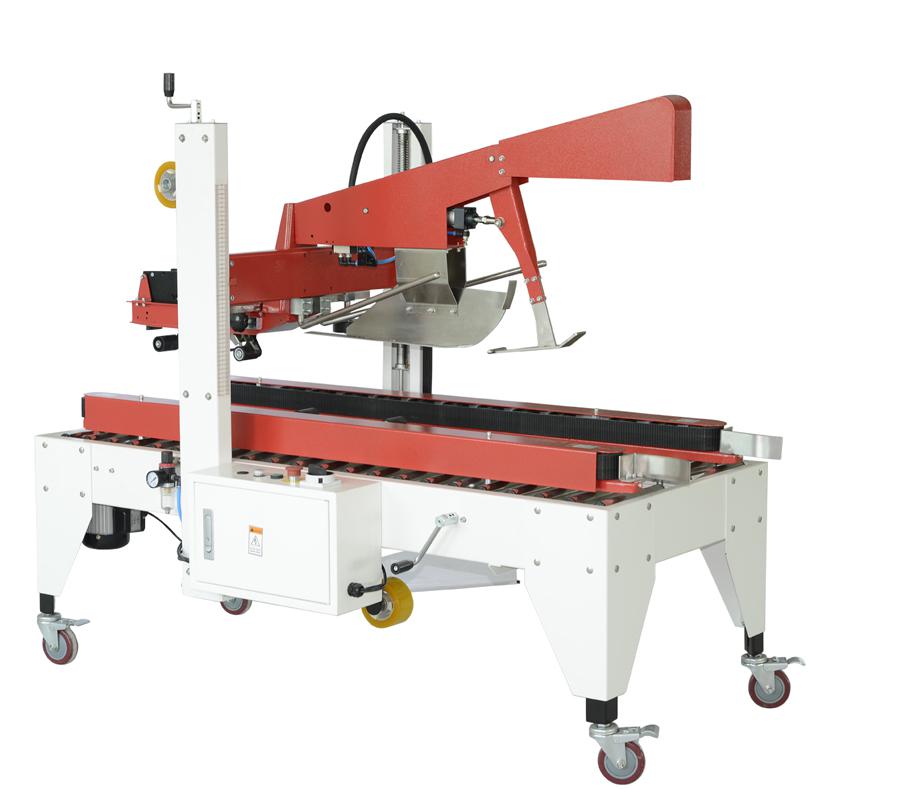![]() 400-850-1759
400-850-1759![]() China
China
![]() 400-850-1759
400-850-1759![]() China
China
Yanmao Intelligent Equipment (Suzhou) Co., Ltd.
Contact: Ren Hongbing
Mobile: 18016000798
Landline: 0512-53635091
Fax: 0512-53635090
QQ: 18016000798
Website: m.kawaiiland.cn
Address: No.8, Xingsheng Industrial Park, 11 Xingye South Road, Taicang City, Jiangsu Province
Industrial robots have the following characteristics: the CNC machine tool axis and remote control manipulator link mechanism together, pre-set the robot action by programming input, the system can leave the person's auxiliary and independent operation. This robot can also accept teaching and complete a variety of simple repetitive action, teaching process, the robot can pass through the various positions of the task, all of these location records recorded in the memory, the implementation of the task, the robot The main technical function of the robot is called "programmable" and "teaching reproduction" in order to reproduce the above position in the servo drive. Stacking robot manufacturers
In 1962 the United States introduced some industrial robots control mode and CNC machine tools are similar, but the shape is mainly composed of similar people and arms. Later, there have been a visual sensor, can identify and locate the industrial robot system.

The most significant characteristics of industrial robots are the following:
(1) programmable. The further development of production automation is flexible start-up. Industrial robots can be reprogrammed with the needs of their working environment. Therefore, it can play a very good function in the flexible manufacturing process with high efficiency and high efficiency. It is an important part of flexible manufacturing system.
(2) anthropomorphic. Industrial robots in the mechanical structure similar to the people walking, waist turn, arm, arm, wrist, grips and other parts, in the control of a computer. In addition, intelligent industrial robots have many human-like "biosensors" such as skin-type touch sensors, force sensors, load sensors, vision sensors, acoustic sensors, and language functions. The sensor improves the adaptability of industrial robots to the surrounding environment.
(3) versatility. In addition to the specially designed dedicated industrial robots, general industrial robots have good versatility in performing different assignments. For example, the replacement of the industrial robot hand end operator (hand, tool, etc.) can perform different job tasks.
(4) industrial machinery technology involves a wide range of disciplines, summed up the combination of mechanics and microelectronics - mechanical and electrical integration technology. The third generation intelligent robot not only has the sensor to obtain the external environment information, but also has the memory ability, the language comprehension ability, the image recognition ability, the reason judgment ability artificial intelligence, these are the microelectronics technology application, especially the computer technology The application is closely related. Therefore, the development of robot technology will drive the development of other technologies, robot technology development and application level can also verify a national science and technology and industrial technology development level.
Today's industrial robot technology is gradually toward the ability to walk, with a variety of perceived ability, with a strong ability to adapt to the direction of the development of the environment. At present, the most influential countries for the development of global robotics are the United States and Japan. The United States is still at the forefront of the comprehensive level of industrial robot technology research, while the Japanese industrial robots in the number and type of the world's first.